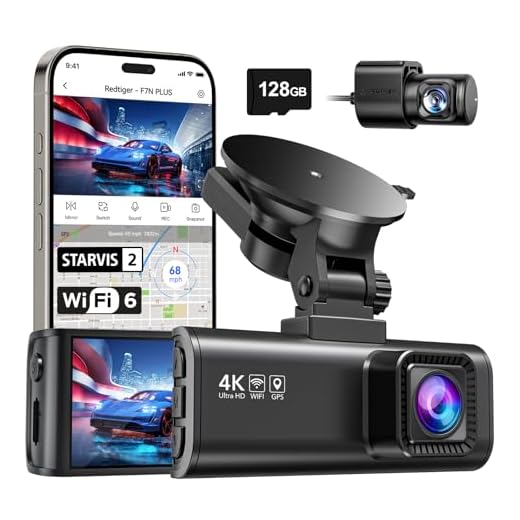
Dash cams are not just for recording your road trips or capturing unexpected moments on the road. They can also be a valuable tool for enhancing the security of your home or office.
With the right setup and a few adjustments, you can easily repurpose your dash cam as a security camera to monitor your property when you are away.
By following some simple steps and utilizing the features of your dash cam effectively, you can create a cost-effective security system that provides peace of mind and added protection for your home or business.
Benefits of using a dash cam
There are several benefits to using a dash cam as a security camera:
1. Evidence in case of an accident: A dash cam can provide crucial evidence in case of a car accident, helping to determine fault and protect you from false claims.
2. Deterrent against theft and vandalism: The presence of a dash cam can deter thieves and vandals from targeting your vehicle, as they are less likely to commit a crime if they know they are being recorded.
3. Monitoring parked car: Some dash cams have a parking mode feature that allows them to monitor your parked car, capturing any suspicious activity or accidents that may occur when you are not around.
4. Insurance benefits: Some insurance companies offer discounts to drivers who use a dash cam, as it can help provide evidence in case of a claim and reduce fraudulent claims.
5. Peace of mind: Knowing that your vehicle is being monitored can give you peace of mind, whether you are driving or parked, and help you feel more secure on the road.
Choosing the right dash cam
When selecting a dash cam to use as a security camera, there are a few key factors to consider:
Resolution
Look for a dash cam with high resolution, preferably 1080p or higher, to ensure clear and detailed footage.
Storage
Consider the storage capacity of the dash cam. Opt for one that supports large memory cards or has loop recording feature to avoid running out of storage space.
Pro tip: Choose a dash cam with built-in Wi-Fi or cloud storage capabilities for easy access to your footage.
Installation of a Dash Cam
Installing a dash cam is a straightforward process that can be done by following these simple steps:
- Choose the right location: Select a suitable spot on your windshield that provides a clear view of the road ahead without obstructing your view.
- Mount the dash cam: Use the adhesive mount provided with the dash cam to securely attach it to the windshield. Make sure it is firmly in place.
- Connect the power: Plug the power cord into your car’s power outlet or connect it to a USB port if your dash cam supports it. Ensure the cable is neatly tucked away to avoid distractions.
- Adjust the angle: Position the dash cam to capture the desired field of view. You may need to adjust the angle to get the best coverage.
- Test the dash cam: Turn on the dash cam and check if it is recording properly. Adjust any settings as needed to ensure optimal performance.
Setting up the dash cam as a security camera
Converting your dash cam into a security camera is a simple and effective way to monitor your vehicle or home. Follow these steps to set up your dash cam for security purposes:
| 1. Placement: | Choose a strategic location to install your dash cam, ensuring it has a clear view of the area you want to monitor. |
| 2. Power source: | Connect the dash cam to a power source, such as a USB port or a power bank, to keep it running continuously. |
| 3. Storage: | Insert a high-capacity memory card into the dash cam to store video recordings for later review. |
| 4. Settings: | Adjust the settings on your dash cam to activate motion detection or loop recording features for better security monitoring. |
| 5. Monitoring: | Access the live feed from your dash cam through a connected device or monitor to keep an eye on the area in real-time. |
By following these steps, you can effectively repurpose your dash cam as a security camera to enhance the safety of your surroundings.
Monitoring the footage
Once your dash cam is set up as a security camera, it’s important to regularly monitor the footage it captures. Check the recordings periodically to ensure that everything is running smoothly and that the camera is capturing the necessary details.
Make sure to keep an eye out for any suspicious activity or incidents that may have been caught on camera. If you notice anything out of the ordinary, take the necessary steps to address the situation promptly.
Additional features for security purposes
If you want to enhance the security capabilities of your dash cam when using it as a security camera, consider the following additional features:
- Loop recording: Make sure your dash cam has loop recording functionality so that it can continuously record footage and overwrite old files when the memory card is full.
- Impact detection: Look for a dash cam that has a G-sensor or accelerometer to detect sudden movements or impacts. This feature can automatically lock and save the footage when a collision occurs.
- Wide-angle lens: Opt for a dash cam with a wide-angle lens to capture a broader field of view and monitor a larger area for enhanced security coverage.
- GPS tracking: Some dash cams offer GPS tracking capabilities, which can provide location data along with the video footage. This can be useful for tracking the vehicle’s movements and recording the exact location of incidents.
- Cloud storage: Consider a dash cam that offers cloud storage options for remote access to footage and secure backup in case the camera is tampered with or damaged.







